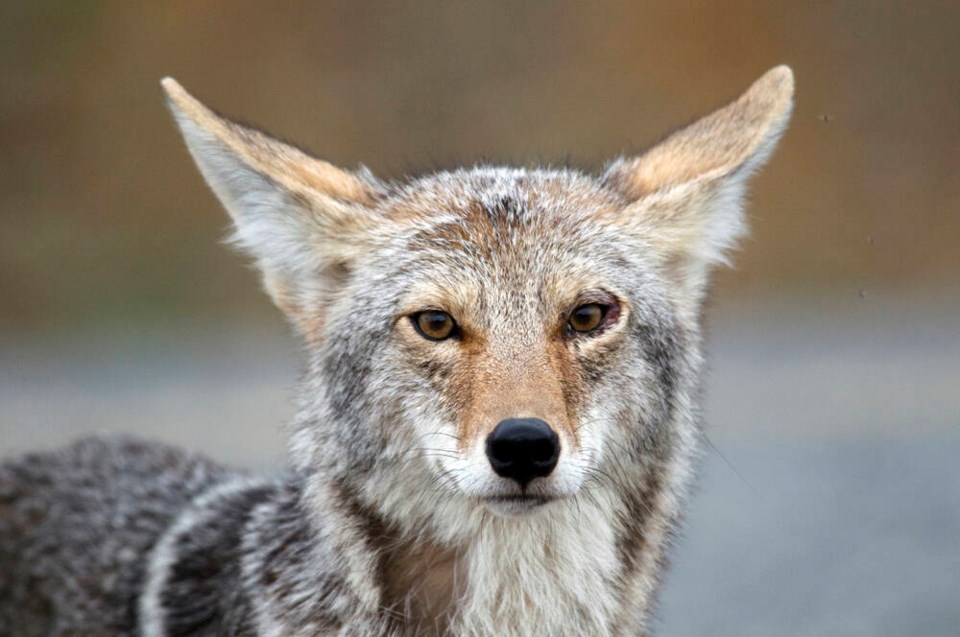The City of Coquitlam has placed coyote alert signs in Mundy Park after a community complaint.
Caresse Selk, city environment manager, said the city received a report about an aggressive coyote in the area near Field 3 as well as reports of coyotes in the Laurentian Belair area, which is the neighbourhood surrounding the park.
However, most of the reports are sightings only.
“The city has not received any reports from residents in the area about aggressive coyotes and no reports of coyotes attacking pets or people,” said Selk, in a statement to the Tri-City News.
However, the precaution follows reports of agressive coyotes in Mundy Park in Coquitlam and Gates Park in Port Coquitlam.
One coyote was spotted in Mundy Park on Sunday (June 4) and other in the Gates Park on Monday (June 6).
A spokesperson for the BC Conservation Officer Services said Coquitlam RCMP were called to the weekend encounter, but no injuries were reported.
In both cases, the service explained the animals were behaving aggressively towards people, but there was no physical contact with bystanders.
Safety tips for living with coyotes
The City of Coquitlam offers the following tips for living with coyotes that have adapted to urban areas.
Coyotes are naturally shy around people, and it is important to keep it that way for the safety of people, pets and coyotes themselves. Never feed coyotes or other wildlife as this is illegal. Coyotes may become bold or aggressive if they become too familiar with human behaviour and unnatural food sources.
If You Encounter a Coyote
- Raise your arms above your head to make yourself look big, and speak loudly and firmly.
- Do not run or turn your back on the animal.
- If the coyote continues to approach, be loud and act aggressive to scare it off.
- Throw rocks or small objects near the coyote and make loud noises.
- Pick up small pets and children.
How to Protect Pets
Take these measures to protect your pets as coyotes have been known to prey on smaller animals:
- Keep cats indoors.
- Walk dogs on a short-leash.
- Supervise your dog while off-leash in a designated off-leash area.
- Walk dogs in high-pedestrian areas and avoid densely vegetated areas.
- Feed pets indoors and do not leave pet food outside.
Tips to Make Your Home and Property Wildlife-Resistant
- Removing food sources and attractants from your backyard will help keep your neighbourhood safe from coyotes.
- Freeze meat and strong smelling food scraps and only place in your Green Cart on the morning of collection day.
- Store Garbage Carts, Green Carts and recycling bins in an area inaccessible to wildlife.
- Place Carts and recycling at the curbside after 5:30 a.m. on collection day.
- Suspend bird feeders and clean up fallen bird seed.
- Practice responsible backyard composting.
- Make areas in the yard less inviting for rodents as they attract coyotes (maintain vegetation and seal off decks, sheds and porches).
- Avoid leaving small pets outside unsupervised and keep pet food inside.
- Keep barbeques clean.
Report a Concern
To report wildlife that is aggressive towards people or pets or causing property damage, call the Conservation Officer Service at 877-952-7277.
To report wildlife attractants, improper storage of attractants or wildlife accessing attractants, call the city at 604-927-3500.



